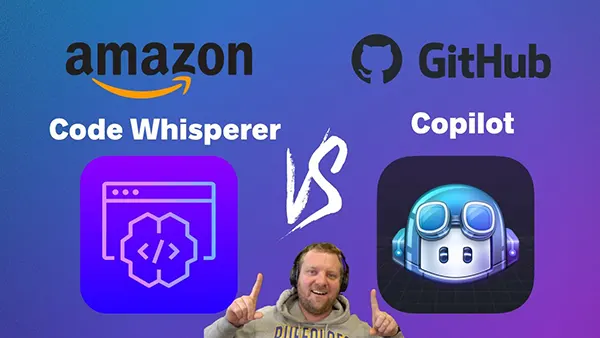
GitHub Copilot vs. Amazon CodeWhisperer in 2025: Who Truly Boosts Developer Productivity?
In 2025, the battle between AI coding assistants has intensified, with GitHub Copilot and Amazon CodeWhisperer leading the race. Developers now rely on intelligent tools to improve efficiency, reduce repetitive tasks, and maintain code quality. But which assistant genuinely supports day-to-day software development work?
Adoption and Integration in Developer Workflows
GitHub Copilot, powered by OpenAI’s Codex model, remains the most widely adopted AI pair programmer. As of June 2025, it integrates seamlessly into popular IDEs like Visual Studio Code, JetBrains, and Neovim. GitHub’s backing and ecosystem enable consistent updates, keeping it highly adaptable to modern languages and frameworks.
Amazon CodeWhisperer has made notable strides since its launch. It integrates deeply with AWS services and supports JetBrains IDEs, VS Code, and even CLI environments. Its compatibility with enterprise ecosystems has made it attractive for teams embedded in AWS infrastructure.
Despite both assistants improving significantly, Copilot retains the lead in adoption, partly due to its longer market presence and tight GitHub integration. However, CodeWhisperer is narrowing the gap with dedicated AWS support and enhanced performance in backend-heavy applications.
Language Support and Customisation Features
Copilot supports more than 30 languages, including Python, JavaScript, TypeScript, C#, and Go. Its suggestions are generally based on public code from GitHub repositories, offering contextually accurate completions and entire function scaffolding. The recent 2025 updates added better handling of Rust and Kotlin, responding to their increasing popularity.
CodeWhisperer also supports major languages like Python, Java, and JavaScript, with newer updates expanding its capabilities in TypeScript, C++, and Scala. Its standout feature is service-specific code generation for AWS SDKs, which makes it a strong fit for cloud-native development.
While both tools can be customised using comments and previous code context, Copilot gives more flexibility for freeform coding, while CodeWhisperer focuses more on secure and context-aware completions in enterprise environments.
Security, Privacy, and Code Safety in 2025
One of the key differentiators in 2025 is how each tool handles code safety and enterprise-grade security. GitHub Copilot now includes a built-in vulnerability detection system. It flags common insecure code patterns and offers security-aware alternatives, based on GitHub Security Lab data.
Amazon CodeWhisperer, however, has placed security at the core of its assistant. It automatically scans code completions for hardcoded secrets, access keys, and insecure function usage. It complies with AWS’s strict internal policies and aligns with many ISO and SOC certifications required in enterprise development.
While GitHub Copilot offers a more generalist approach to security, CodeWhisperer focuses heavily on enterprise and regulatory compliance, making it a preferred option for security-first organisations.
Privacy Controls and Enterprise Deployment Options
GitHub Copilot provides a business plan that allows organisations to manage source data sharing, user permissions, and internal documentation usage. Yet, as of June 2025, some enterprises remain cautious about data sent to external models, especially with concerns around code ownership.
CodeWhisperer offers enhanced privacy options out-of-the-box. It operates in isolated cloud environments and offers customer-managed encryption keys. These features provide reassurance for companies processing sensitive or proprietary codebases.
For developers working in tightly regulated industries, CodeWhisperer offers stronger guarantees, whereas Copilot is favoured for projects with public-facing or open-source components.

Productivity Gains and Developer Feedback
Multiple independent surveys conducted in Q2 2025 indicate that developers using Copilot report up to 40% reduction in boilerplate writing and improved flow during exploratory coding. It shines in fast prototyping, frontend development, and algorithmic tasks.
Developers using CodeWhisperer reported a 30–35% reduction in backend implementation time, especially in projects that integrate with AWS services. It is particularly effective when building APIs, Lambda functions, and automating infrastructure-as-code setups.
Feedback also shows that Copilot occasionally generates legacy or deprecated patterns due to its training on vast but outdated repositories. CodeWhisperer, on the other hand, benefits from up-to-date AWS documentation and prioritises current practices.
Which Assistant Delivers Long-Term Value?
For startups, individual developers, and open-source enthusiasts, GitHub Copilot delivers unmatched flexibility and creativity. It helps explore ideas quickly, write tests, and automate common logic across different tech stacks.
For enterprise teams and developers focused on cloud-native or secure development, Amazon CodeWhisperer emerges as a more disciplined and compliance-oriented assistant. Its integrations, especially in DevOps pipelines, continue to grow in importance in 2025.
Ultimately, both tools now cater to distinct audiences. GitHub Copilot leads in flexibility and general development, while CodeWhisperer provides structure, safety, and tailored support for modern enterprise development.



